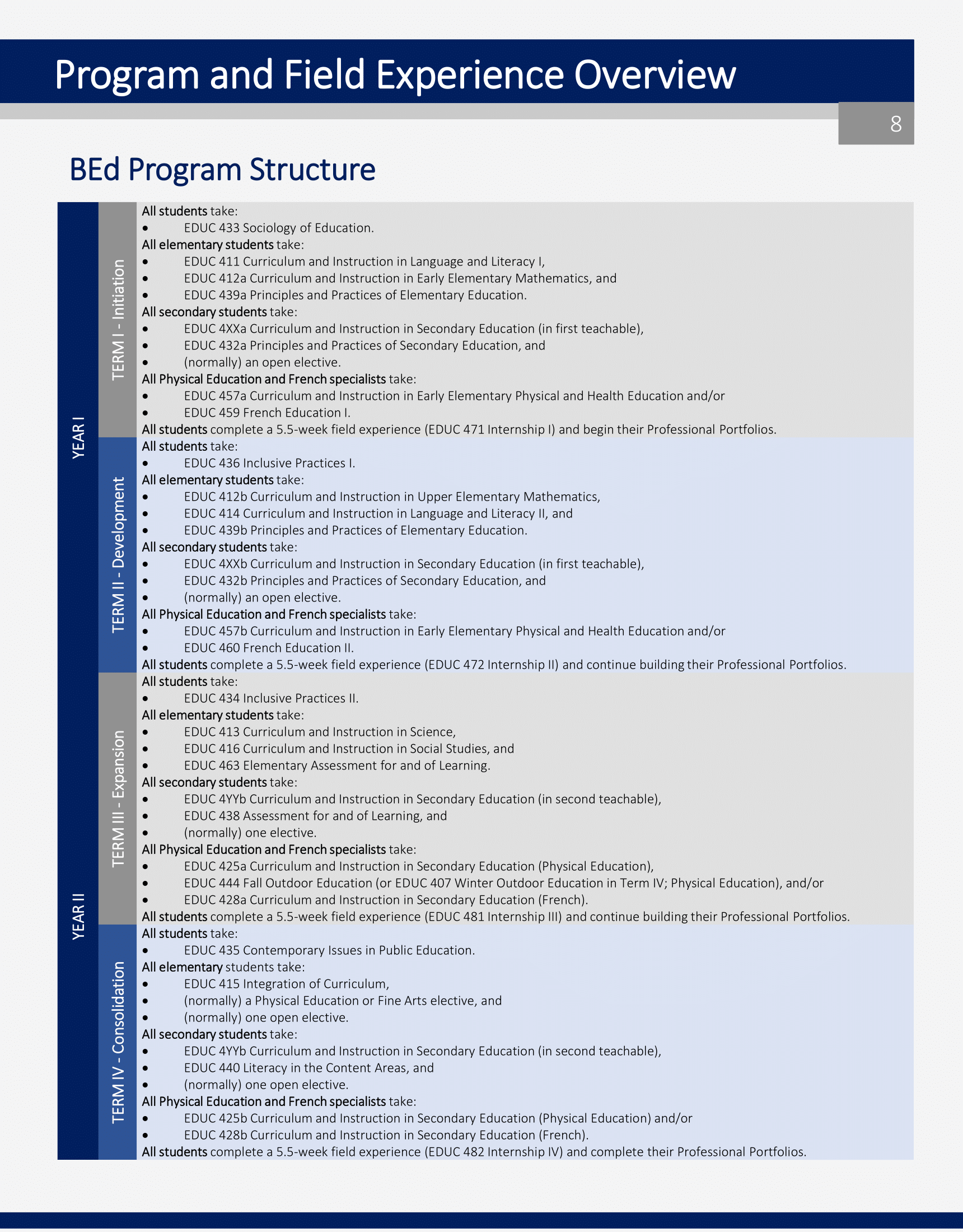BEd Program Overview
This is a typical course progression structure for the BEd Program.

For course specific details and information, see the current Academic Calendar.
Contact
Teacher Education Department
218 Xavier Hall
4545 Alumni Crescent
Antigonish NS B2G 2W5
Canada

